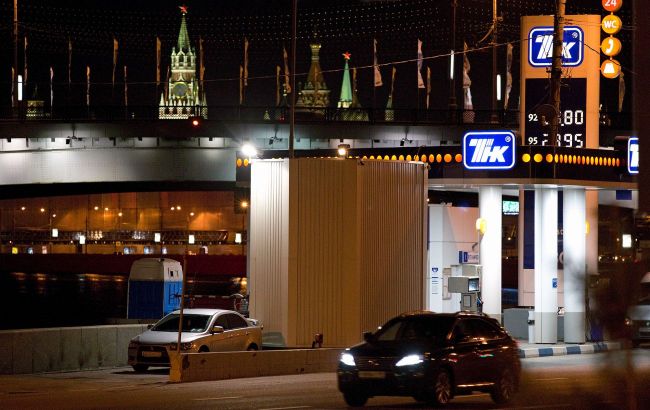Refinery attacks trigger mass gas station shutdowns across Russia
 Photo: Attacks on oil refineries have led to gasoline shortages in Russia (Getty Images)
Photo: Attacks on oil refineries have led to gasoline shortages in Russia (Getty Images)
Wholesale gasoline sales in Russia have fallen to a two-year low, while prices continue to break records. The shortage is exacerbated by refinery shutdowns following Ukrainian drone attacks and high demand from farmers, according to Russian media.
According to the Russian newspaper Kommersant, sales of A-92 gasoline on the St. Petersburg Stock Exchange fell by 21.7% to 15,600 tons on September 16, the lowest level since 2023.
Sales of A-95 fell by 15.5% compared to the previous day, to 12,060 tons.
Overall, gasoline sales on the exchange fell by 19.1%, to 27,700 tons.
The decline in exchange sales of gasoline is associated with unscheduled shutdowns of several large refineries, but the reason for the shutdowns is not specified.
Refineries declare force majeure - fuel shortage at gas stations
Russian oil refineries have declared force majeure and are not shipping gasoline, resulting in rapidly depleting local stocks.
Due to the fuel shortage on the exchange, independent gas station chains are losing out to large chains, which are the suppliers' priority.
On September 16, two independent chains (about 20 gas stations each) in the regions of Russia suspended retail sales and are selling gasoline only under long-term contracts.
Another reason for the fuel shortage is increased demand
Refinery shutdowns also coincided with increased demand. The decline in sales is particularly linked to high demand from Russian farmers during the busy harvest season in September-October.
“Market participants fear that gasoline supplies in September may be delayed due to unscheduled repairs at refineries, and that its significant sales in the last week of August are not backed up by actual resources,” Kommersant notes.
On September 18, the Volgograd refinery stopped working due to a drone attack. Ukrainian special operations forces confirmed the strike.
Today, information also emerged that drones attacked Gazprom's petrochemical complex in Salavat, located about 1,500 km from the border with Ukraine.
According to the latest data, the strikes on the refinery disabled facilities that accounted for at least 17% of Russia's oil refining capacity, or 1.1 million barrels per day.

